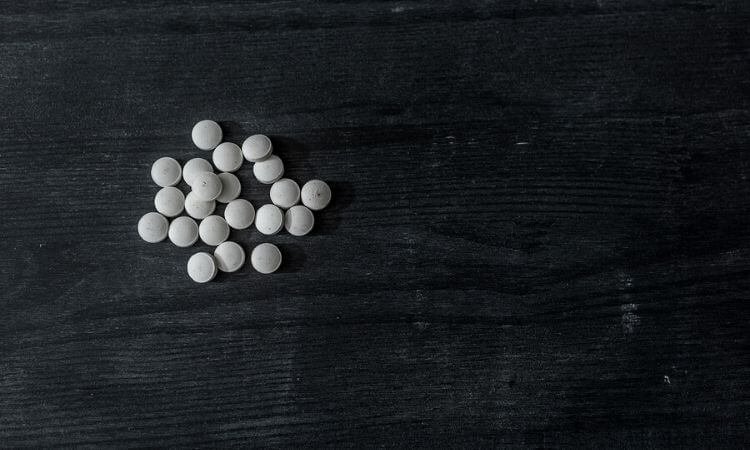
Amphetamines are a class of central nervous system (CNS) stimulants that include amphetamine, dextroamphetamine, and methamphetamine. They are commonly prescribed for the treatment of ADD/ADHD, narcolepsy, and sometimes obesity. Amphetamines are scheduled as controlled substances in the United States because they are considered to have a high potential for abuse and addiction.
Amphetamines remain in a person’s system for around 2-5 days. Of note, different amphetamines stay in the body for different lengths of time.
Amphetamine use can be identified by tests using samples of blood, urine, hair, or saliva. Standard tests, such as those involving urine, can detect amphetamines for up to four days, and hair follicle tests can identify amphetamine use for as long as 90 days.
Specifically, amphetamine and methamphetamine are detectable for up to three days, whereas methylenedioxyamphetamine and methylenedioxymethamphetamine are generally only detectable for two days. Ephedrine/pseudoephedrine can be detected for up to five days.
Some over-the-counter and prescription medications may test positive for amphetamines. False positives are also possible among those taking antihistamines, nasal inhalers, cold medicines, and some pharmaceuticals intended to treat depression.
Drug Testing for Amphetamine
Urine Tests
Amphetamines can be identified in a person’s urine for up to 72 hours after ingestion, depending on urine pH and individual differences. Regular amphetamine users may produce positive urine tests for up to four days after the last dose.
Blood Tests
Methamphetamine will remain in plasma for four to six hours. Blood tests can ascertain the difference between amphetamine misuse or appropriate use as prescribed by a doctor.
When used as directed, levels of amphetamine in the blood range from 0.02-0.05 mg/L and, on occasion, up to 0.2 mg/L. Concentrations higher than 0.2 mg/L reveal a sign of amphetamine abuse, and those higher than 2.5 mg/L can lead to a lethal overdose.
Hair Tests
Depending on hair length, amphetamines can be identified for up to 90 days after the last dose. Hair tests are among the most dependable tests for detecting prior use, although they cannot uncover recent or infrequent drug use.
Drugs go from the bloodstream to hair follicles and can be detected about between 7-0 days after ingestion. Hair structure, rate of growth, melanin content, and cosmetic hair treatment may have an effect on the concentration of drugs in hair.
Saliva Tests
Saliva tests can detect amphetamines from 24-48 hours after use. These tests can detect same-day use in some cases, and are administered using a swab or absorbent pad.

Effects of Amphetamines on the Body
Amphetamines activate neurons in the central nervous system and work to increase concentration and alertness. Compared to the short-lived effects of cocaine, which impacts the body in similar way, the effects of amphetamines can last for several hours after ingestion. Additionally, combining amphetamines with alcohol and other drugs intensifies the effects. Furthermore, amphetamines act on the body rapidly after being used.
Effects of Amphetamines
The speed and intensity of amphetamines are closely related to the method of administration. Oral consumption can take up to 20 minutes to have effects, but snorting can result in effects that onset with 5 minutes. Like other drugs, injecting amphetamines can cause effects that are nearly immediate.
Methamphetamine (meth) converts to amphetamine in the body and can cause agitation, delusions, paranoia, hallucinations, and aggression. Abuse of this drug can result in health problems, including heart disease, stroke, convulsions, and severe tooth decay. Misusing amphetamines also can lead to overdose.
Symptoms of amphetamine overdose include:
- Hyperactivity
- Hypertension
- Dilated pupils
- Hyperthermia
- Violence
- Psychosis
- Increased heart rate
- Severe agitation
An overdose of amphetamines is not usually fatal, but it can be. Amphetamine abuse is often following by a period in which the person sleeps for an abnormally long time. Abuse can also lead to other symptoms of withdrawal, such as depression and irritability.
Treatment for Drug Addiction
If you are abusing amphetamines, other drugs, or alcohol, we urge you to seek treatment as soon as possible. Failure to pass a drug test at work or for legal reasons can result in unemployment or incarceration. Furthermore, drug abuse can rapidly lead to other adverse consequences, such as family conflict, financial problems, and an array of health complications, up to and including a lethal overdose.
Midwood Addiction Treatment offers comprehensive, individualized treatment programs that include services found to be beneficial for the process of recovery, including, but not limited to, the following:
- Cognitive-behavioral therapy
- Individual and family counseling
- Peer support groups
- Substance abuse education
- Health and wellness education
- Art and music therapy
- Medication-assisted treatment
- Aftercare planning
If you or someone you love is struggling with a substance use disorder, please contact us as soon as possible! We are dedicated to helping those who need it most to recover from addiction and reclaim the fulfilling life they deserve!